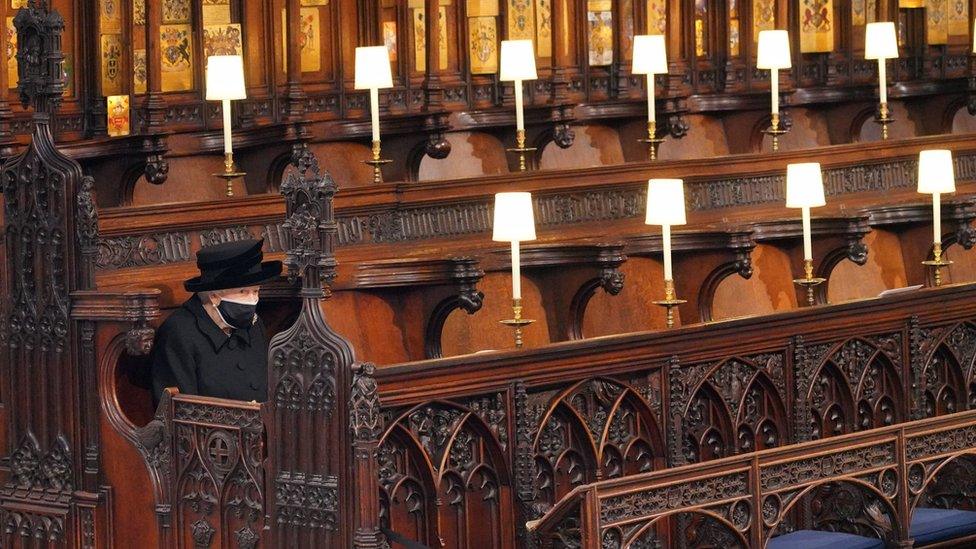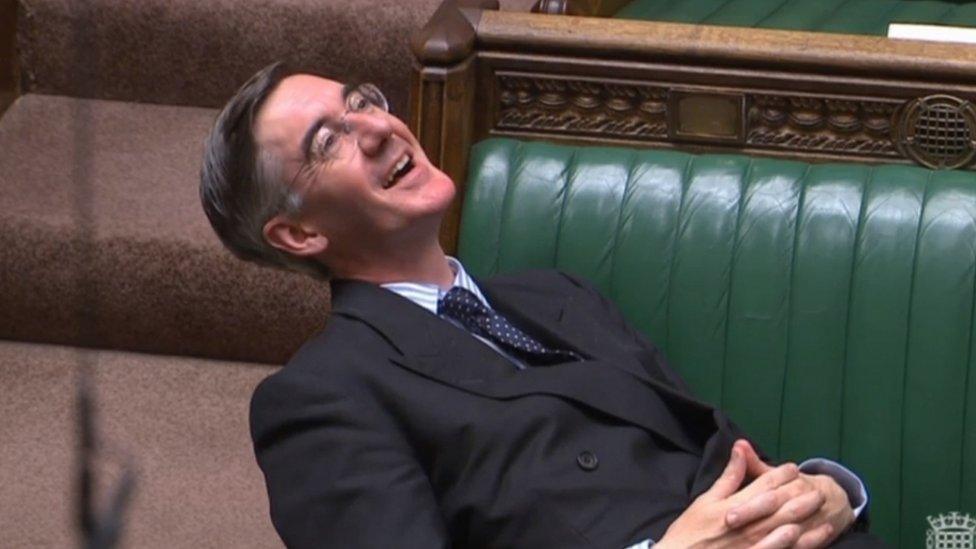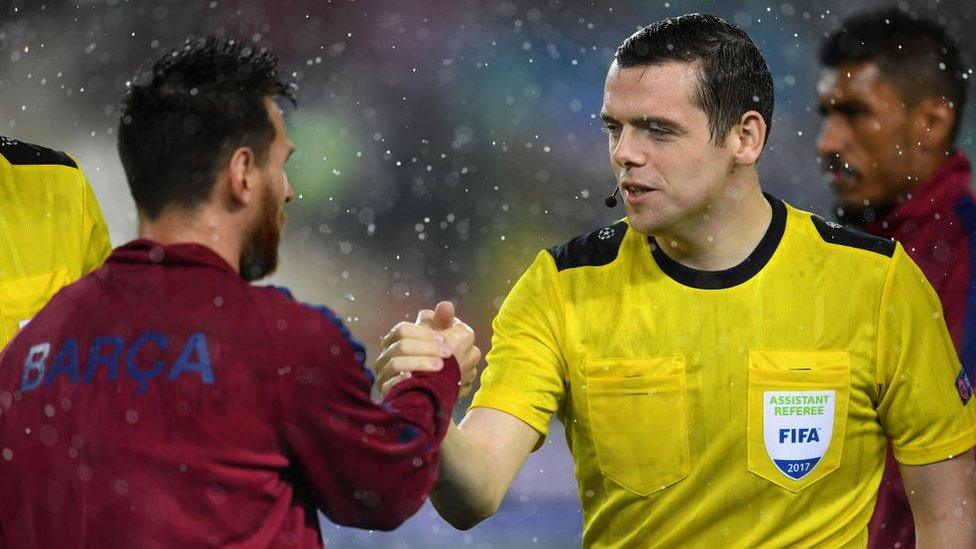Why the Scottish Tory leader wants to oust Boris Johnson
- Published

Mr Ross, pictured with the PM in 2019, backed Mr Johnson in the final round of the Tory leadership contest
The nightmare scenario for Scottish Conservative leader Douglas Ross is that Boris Johnson's premiership somehow survives the party scandal.
Having called for his replacement and led the bulk of Tories at Holyrood to do the same, he has the sourest relationship with Number 10 until there's a change.
That Mr Johnson stays put is an outcome the secretary of state for Scotland, Alister Jack seems to think is possible.
He's offered the prime minister his 100% support, external and hopes his Holyrood colleagues "reconsider" their resignation calls if Sue Gray's inquiry "exonerates" Mr Johnson.
Asked how exoneration is possible when the PM has admitted attending a "bring your own booze event", having told parliament that Covid rules were followed at all times, Mr Jack said it was for the inquiry to decide.
That was before the latest round of party revelations appeared in the Telegraph, including the detail that someone was sent out to buy a suitcase full of wine, external on the eve of Prince Philip's funeral.
These are likely to strain the patience of Tory backbenchers further - although most seem to be waiting for Sue Gray's report before deciding what to do.
Her findings are widely expected in the next week or so, but the more there is to investigate the longer it could take.
While she can set out the facts about the social gatherings that took place in and around Downing Street during lockdown, it is not clear how censorious she can be.
Ms Gray is a senior civil servant employed by the UK government. She has a reputation for integrity but is not the police or even the arbiter of the ministerial code of conduct.

The Queen was pictured sitting alone at Prince Philip's funeral due to Covid restrictions the day after two staff parties in 10 Downing Street
While her work continues, so too does the huge rift between the Scottish Conservatives and the UK party.
Never before has the leader of the Scottish Tories effectively put himself at the head of a campaign to oust the UK party leader and prime minister.
For this disloyalty to Boris Johnson, he has been dismissed as a "lightweight" by the Commons leader, Jacob Rees-Mogg.
That attempt to belittle him has antagonised Scottish Tories. MSP Liz Smith said it was an "ill advised" remark while MSP Jamie Greene suggested Mr Rees-Mogg needed a lie down.
One reason this cross-border infighting is so toxic for the Conservatives is that they are a unionist party and if they can't unite themselves, how can they pose as defenders of the UK Union?

Jacob Rees-Mogg dismissed Mr Ross as being a "lightweight" within the Conservative party
A former Conservative minister, Alistair Burt, put it more bluntly when he said the Rees-Mogg comments "echo an English nationalist disaster for a party of the union".
But another former minister, Colin Clark, has suggested it is Douglas Ross and the Scottish Tories who are putting the union at risk by supporting "regicide".
For the record, Alister Jack has said he does not think Mr Ross is a lightweight but he declined to call on Jacob Rees-Mogg to apologise.
Mr Rees-Mogg also wrongly claimed that Douglas Ross has never supported the prime minister.
In fact Mr Ross backed Boris Johnson over Jeremy Hunt in the final stages of the 2019 leadership contest and served in his government.
He only quit as a UK minister over Mr Johnson's failure to take action against his special adviser Dominic Cummings over his travels to Barnard Castle during lockdown.

Mr Ross is a football referee as well as an MP and MSP
Mr Ross - who is also a football referee - has occasionally raised a yellow card in protest at the Johnson administration in the period since then.
Attempting to red-card the prime minister over lockdown parties takes the assertion of political autonomy to a whole new level.
In calling for the PM to quit Douglas Ross is - unusually - on the same side of an argument as both the SNP and Labour.
Part of his calculation seems to be that Boris Johnson is such an unpopular figure in Scotland that Tory prospects would improve under any new UK leader.
If Mr Johnson is forced from office then the Scottish Tory leader might even get some credit for taking a stand.
If he's right about that, then perhaps his political rivals in other parties need to be careful what they wish for.
After all, it is under Boris Johnson's leadership that independence enjoyed a sustained period of majority support in opinion polls and Labour took the lead in UK wide voting intention surveys.
The local elections in Scotland, Wales and much of England on 5 May will be an early test of the political mood.
Within the Scottish Conservative party there is renewed debate about whether or not they should now breakaway from the UK Tories and establish a separate but allied party.
This was the model proposed by MSP Murdo Fraser in the 2011 leadership contest.
Douglas Ross has said he does not support going it alone. He would appear to prefer reconciliation under new UK leadership.
Assuming that's possible, it would probably have to be a changed relationship that acknowledges Scottish support cannot be taken for granted.
Then there is Mr Ross's nightmare. That he's stuck with a PM and UK leader he cannot support.
Mr Jack's suggestion that in those circumstances Scottish Tories might "reconsider" their opposition seems incredible.
I think it would be too humiliating for them.
The alternatives might not look too attractive to Douglas Ross either: a protracted stand off, standing down himself, or leading a breakaway after all?
I suspect he has everything crossed that the big call he's made that Boris Johnson is finished turns out to be correct.